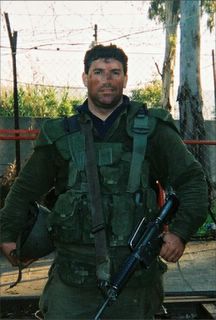The Israeli military has racked up several remarkable achievements in the last week, but the hard part is still ahead of us – and I’m not just referring to the ground invasion. Israeli leaders must withstand the mounting pressure to halt the operation prematurely.
Moments after Israel launched its operation, European leaders were calling on Israel to stop. They were not alone. Leaders and groups from across the world are calling on Israel to halt its military operations. The response of these nations and groups are reflexive and expected. This is how the West reacts to violence in the Middle East. The mantra is “Stop fighting. Start talking.”
That’s a nice sentiment when you’re at café, university, park, or government office thousands of miles away from the actual conflict. Egypt borders both Israel and Gaza. They explicitly blame Hamas, have shown considerable understanding of Israel’s actions, and call on Hamas – not Israel – to unilaterally halt its attacks. Palestinian leaders in the West Bank bluster, but they were eager to mention on the first day of Israel’s operation that they are ready to take control of Gaza if Israel dislodges Hamas.
The governments most affected by Hamas rule over the Gaza Strip – the Palestinian Authority and Egypt – aren’t suggesting that Israel engage Hamas in dialogue. They understand something that much of the Western world has still failed to internalize – you can’t convince Islamic radicals to stop being Islamic radicals. I am not suggesting that Islamic radicals aren’t rational. They are very rational and many of their leaders are politically sophisticated. It’s just that their strongly held beliefs – which are essentially incomprehensible to a Western mind that has detached itself from religious and ideological thinking – lead them to see Israel as a cancer and the West as a poison that must be eradicated at all costs.
No one is going to convince the Hamas leadership to live side-by-side with Israel in peace and harmony. That is never going to happen. If they agreed to live side by side with Israel – something they have rejected continuously – they wouldn’t be Hamas anymore. That’s why nothing can be gained by entering into dialogue with them and that’s why violence is sometimes necessary. In this case, conflict between Israel and Hamas might be critical to the achievement of peace between Israel and the Palestinians. The destruction of Hamas and the subsequent re-introduction of Palestinian Authority control over Gaza would enable forward momentum in the Israeli-Palestinian peace process that is currently not possible.
Even a brief ceasefire provides Hamas with time to reorganize, plan, and ready itself for additional attacks. A longer ceasefire – that leaves Hamas intact as the de facto rulers of Gaza – only postpones the inevitable conflict between Israel and Hamas. Better for Israel to finish off Hamas now than wait until later, when Hamas has become more powerful.
The cost in Israeli lives to dismantle Hamas and essentially liberate the Gaza Strip for the Palestinian Authority may be high. As a reserve soldier, who is likely to put on his uniform in the weeks to come, I can honestly say that achieving that objective would justify the cost.
At this stage, taking away Hamas control over Gaza is not the stated objective of the Israeli government. Their goals are more modest. They want to cause Hamas to re-evaluate their strategy of firing daily rockets at Israeli cities. There is precedence for this approach. In 2004, Israel caused Hamas to re-evaluate its strategy of sending suicide bombers into Israeli cities by killing Hamas leaders Yassin and Rantisi in quick succession. It is possible that today’s Hamas leaders, fearing for their lives and realizing that they are in danger of losing political power over Gaza, will meet Israel’s minimum requirement – which is to stop firing rockets and mortars at Israeli cities.
If that is the primary goal of Israel’s leadership, then they should not deploy Israeli ground troops en mass. Instead, they should continue conducting pinpoint missions that are aimed at specific Hamas leaders and institutions until the remaining Hamas leaders give in.
This approach could give Israel another year of relative quiet in the South, but the country will be eventually forced to deal with Hamas since the Palestinian Authority is unable to reconstitute itself in Gaza on its own. The cost in human life will be lower today – for both Palestinians and Israelis – than in the future. Also, success in Gaza will serve to augment Israeli deterrence with Hezbollah, Syria, and Iran. A strong Israeli deterrence is what keeps future wars from occurring.
Israeli political and military leaders must resist calls – by either foreign interested parties or internal audiences – to accept ceasefire proposals that don’t meet the minimum requirement of an immediate cessation of hostilities on the part of Hamas and a mechanism for ensuring that Hamas does not re-arm.
To achieve that end, the Israeli military can either continue targeted killings of high ranking Hamas officials while destroying Hamas symbols of power until the organization concedes defeat or the Israeli military must employ enough combat troops to enable rapid IDF domination of the Gaza Strip.
Labels: Gaza, IDF, Israel, Israeli Military


0 Comments:
Post a Comment
Subscribe to Post Comments [Atom]
<< Home